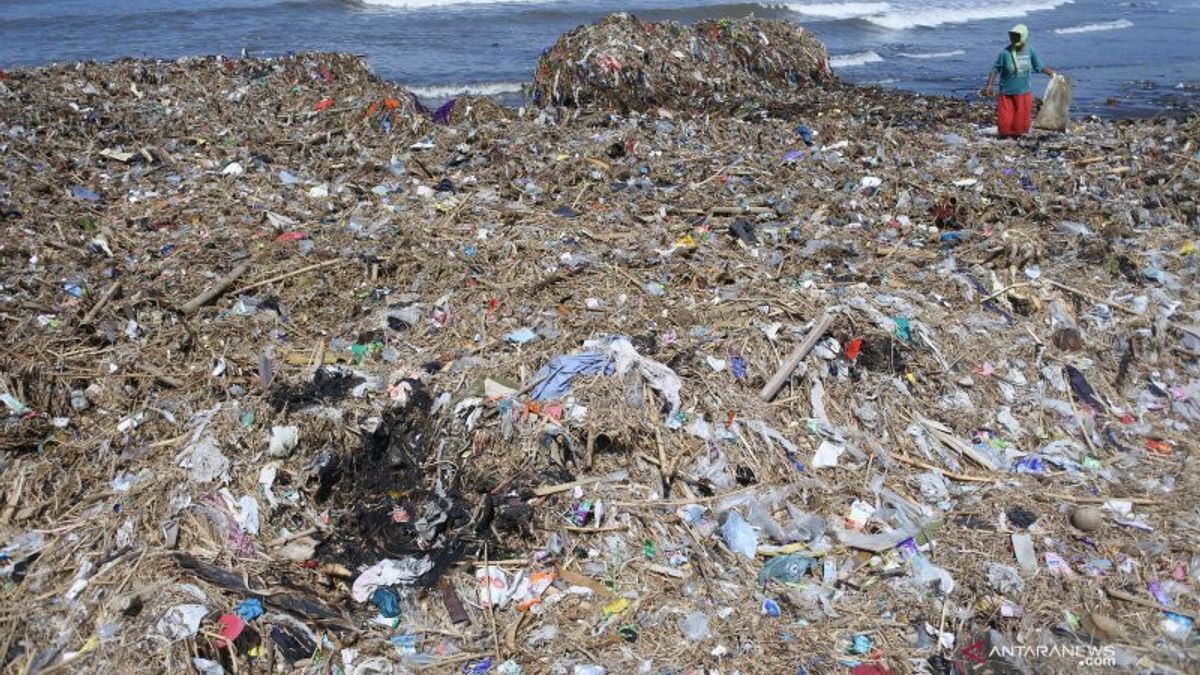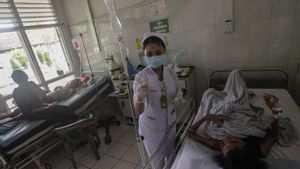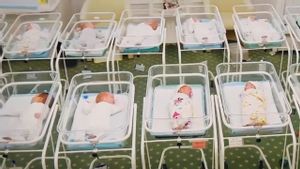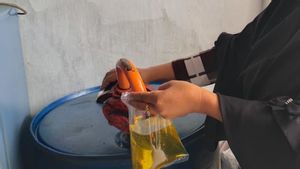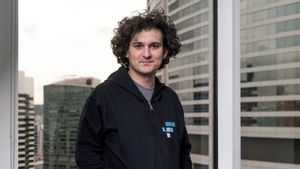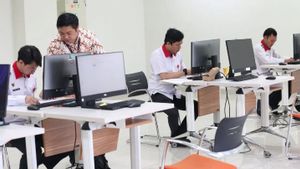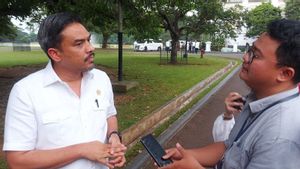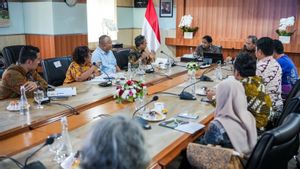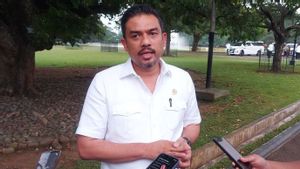JAKARTA - Since plastic was used in the 20th century, global issues about this material have continued to roll. Every year around five million tons of plastic waste is dumped into the sea. Because the chemical process in its production does not have organic substances or enzymes built in, making it difficult to decompose in the wild.
Plastic waste pollution, according to the Union for Conversation of Nature (UCN), causes harmful effects on marine ecosystems as well as human health. The study says plastic waste is responsible for the deaths of around 10.000 marine animals and about one million birds. Plastic waste can suffocate and ensnare them.
The food chain continues to humans. If you eat something that comes from the sea, then the microplastics that are ingested by marine species will move into the human body.
But Japanese scientists managed to find a solution to this difficult problem. Reporting from Live Science on March 23, research by the Kyoto of Technology research team led by Professor Shosuke Yoshida, found the bacterium Ideonella sakaiensis which has the ability to eat plastic as their energy source.

These bacteria can destroy a thin layer of plastic polyethylene terephthalate (the main ingredient of plastic) in 6 weeks at a temperature of 30 degrees. These bacteria are also able to produce enzymes that are proven to be able to decompose plastic waste.
The research team revealed that these plastic-eating bacteria were discovered when collecting plastic bottles outside recycling facilities. Bacteria basically spend their time absorbing dead organic matter, but instead, they eat a certain type of plastic, namely PET.
After further research, the scientists found that these bacteria produce two digestive enzymes, namely the hydrolysis of PET or PETase. They also found that a combination of bacteria was able to break down not only polyethylene terephthalate (PET) but also the plastic used to make bags.
Consumable Plastic
After the remarkable discovery of this plastic-eating bacteria, scientists conducted another trial using the bacterium Ideonella sakaiensis to increase its efficiency. One of the trials is to genetically engineer bacteria to produce enzymes such as E.coli.
The enzyme is then used as a PETase factory and then turns the plastic into Vanillin, the main component of vanilla bean extract. The resulting vanillin is considered suitable for human consumption although further research is still needed.
Researchers from the University of Postmouth also conducted experiments on plastic-eating bacteria by re-engineering the PETase enzyme to produce a "cocktail" enzyme that they claim can digest up to six times faster.
While this discovery offers hope for tackling a world's overcapacity plastic waste, the scientists caution that there is still a long way to go for the widespread use of bacteria. In addition, they underlined that the PETase enzyme has so far only been able to decompose PET plastic. Meanwhile, there are six other types of plastic that cannot be broken down using these enzymes.
Risk of Natural Change
The founder of the Ocean Recovery Alliance, an environmental organization based in Hong Kong and the United States, Douglas Woodring, agreed with the proposal for more research. There is also a need for better regulation and corporate responsibility.
“I'm not ignoring this new discovery, but we shouldn't get too excited and put all our hopes on one solution. We have all the technology needed to solve the current plastic pollution crisis, but don't use it rashly," Woodring said in the Journal of Hazardous Materials.
"Collecting plastic from the ocean is expensive, unless you suggest that bacteria are being released in the ocean to eat the plastic. However, it creates a high risk of environmental change and unintended consequences," Woodring added.

This discovery is considered to be extraordinary because it can be a solution to overcome global plastic waste pollution. Experts believe that plastic-eating bacteria can help tackle the plastic that is dumped into the oceans every day.
While this discovery offers hope for tackling the world's overcapacity plastic waste, the scientists caution that there is still a long way to go for the widespread use of bacteria.
SEE ALSO:
The English, Chinese, Japanese, Arabic, and French versions are automatically generated by the AI. So there may still be inaccuracies in translating, please always see Indonesian as our main language. (system supported by DigitalSiber.id)
